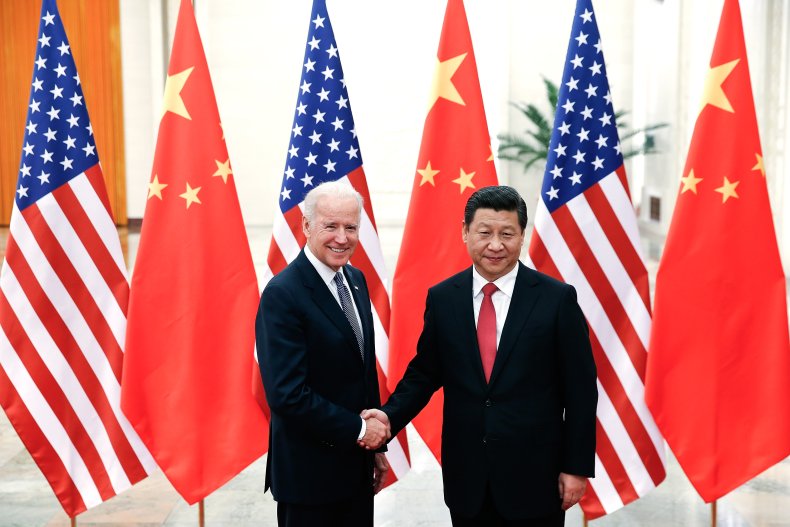President Joe Biden signed off on the $770 billion National Defense Authorization Act (NDAA) which will fund the U.S. Department of Defense and chart a path forward as to where the nation will focus its military resources in the year ahead.
Among the bill's priorities include a $7.1 billion carveout for the Pacific Deterrence Initiative, a program that will bolster U.S. defense operations in the Pacific region and in invest in alliances aimed to counter China.
In addition to this measure, the NDAA's actions aimed to rein in the influence of China include a statement of congressional support for the defense of Taiwan and a ban on the Department of Defense purchasing products made in Uyghur forced labor camps in the country's Xinjiang region.
China did not take kindly to the measures, with Foreign Ministry Spokesperson Zhao Lijian decrying the new China-focused actions as "political manipulation" that reflected an "obsolete Cold War" mentality.
"We firmly oppose the US slipping in negative content concerning China or making an issue out of China for political manipulation," Zhao said during a Tuesday press conference. "We urge it to discard the obsolete Cold War zero-sum mentality and ideological bias and look at China's development and China-US relations in an objective and rational light."

While China has always had a presence in the South Pacific, over the past two decades it has steadily expanded its influence. The Brookings Institutionwrites that "many" see the rate of China's expansion in the region as moving faster than would be "considered a natural reflection of China's growing economic and geopolitical clout."
In addition to providing a massive amount of foreign aid to Pacific Island nations, China has looked to establish foreign naval bases in the region and has moved to increase the size of its navy, resulting in the country now boasting naval forces larger than that of the U.S.
The threat of China's expansion has allowed it to exert greater influence in the region, leading it to make stronger pushes toward securing its interests, as can be seen in its moves to exert military influence over Taiwan, which it views as a breakaway province. Taiwan's president, in turn, sees the island as an independent state, and while the U.S. does not officially recognize it as so, Biden has said the U.S. would protect it if China were to invade.
During an October CNN town hall, Biden was asked if the U.S. would come to Taiwan's defense if China attacked. To which he said, "Yes, we have a commitment to do that." Not long after, Secretary of State Antony Blinken released a statement in support of Taiwan, saying:
"Taiwan's meaningful participation in the UN system is not a political issue, but a pragmatic one," he wrote. "Taiwan has become a democratic success story. Its model supports transparency, respect for human rights, and the rule of law—values that align with those of the United Nations."

Post a Comment